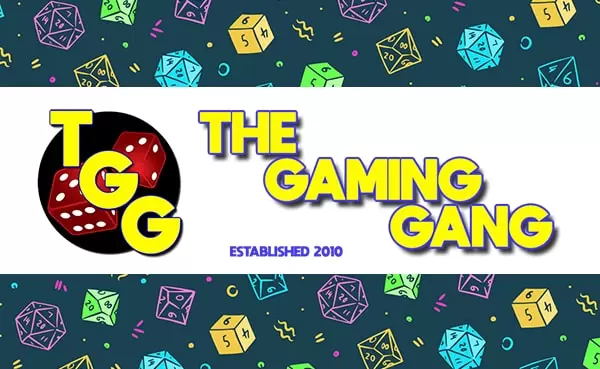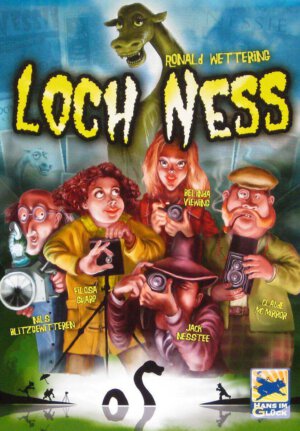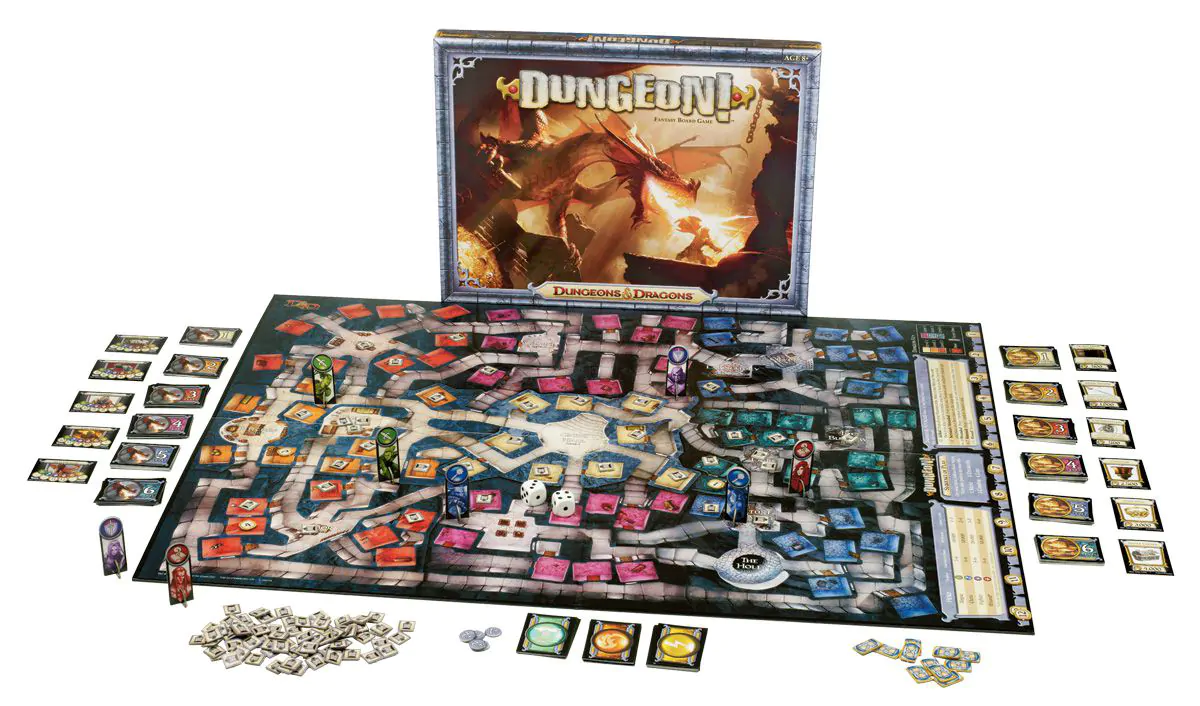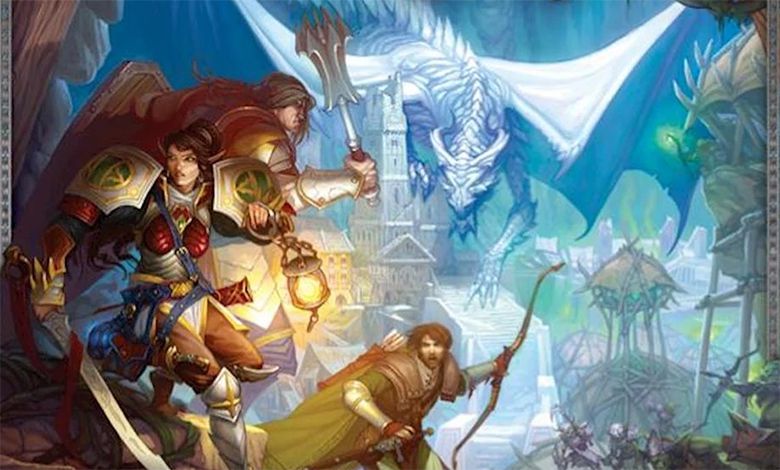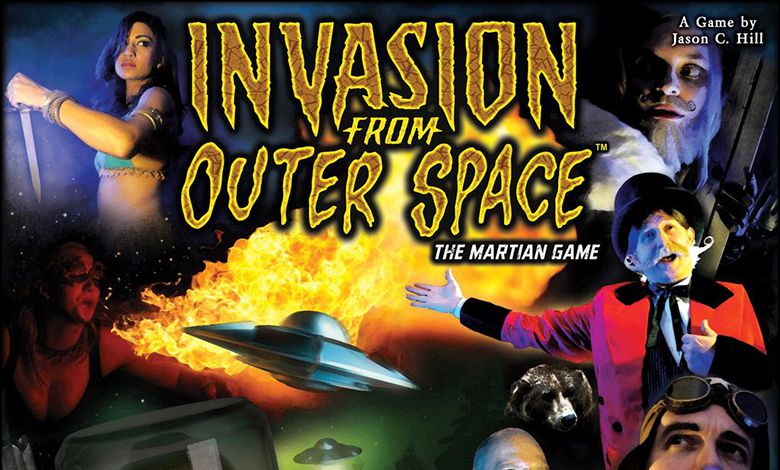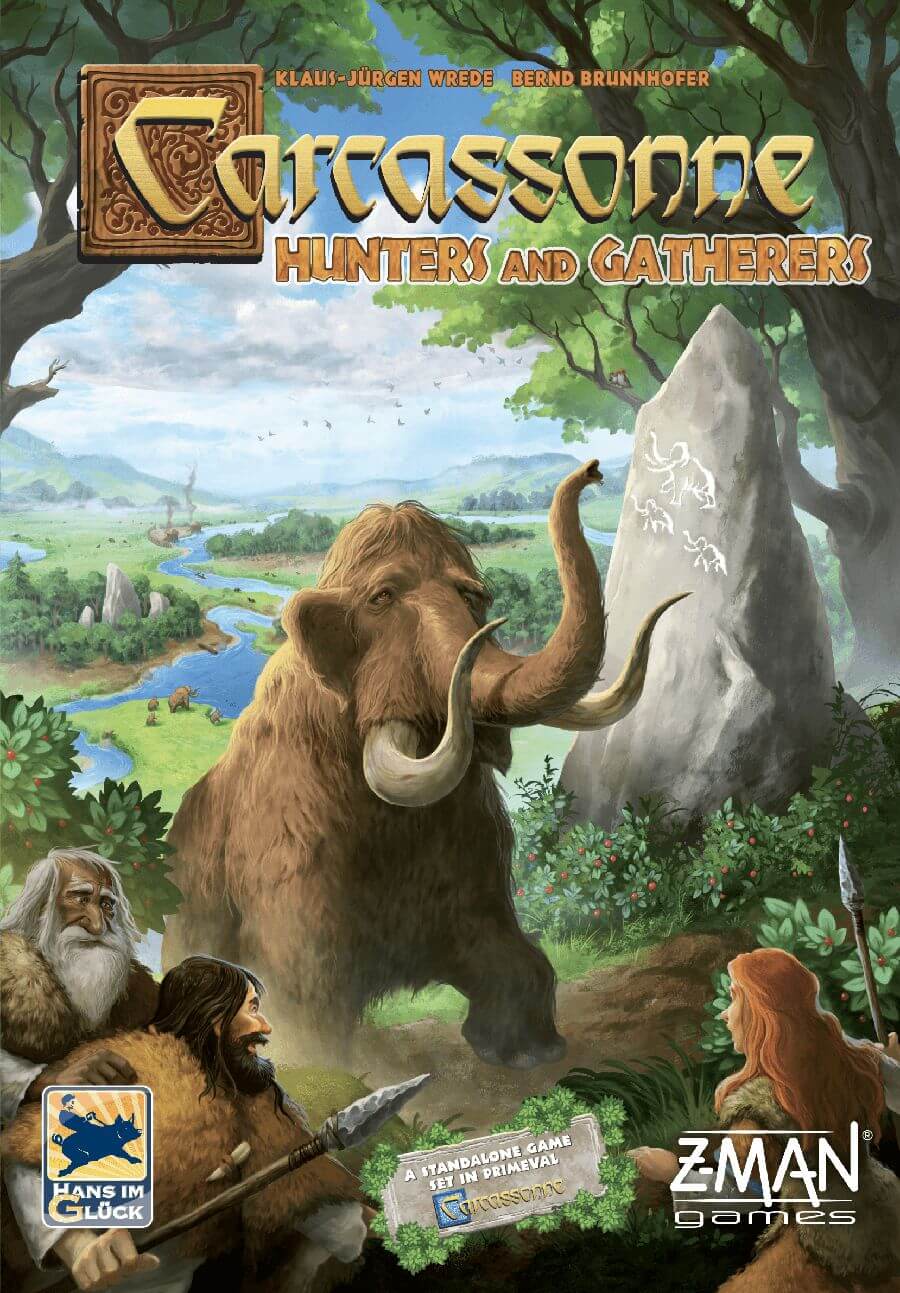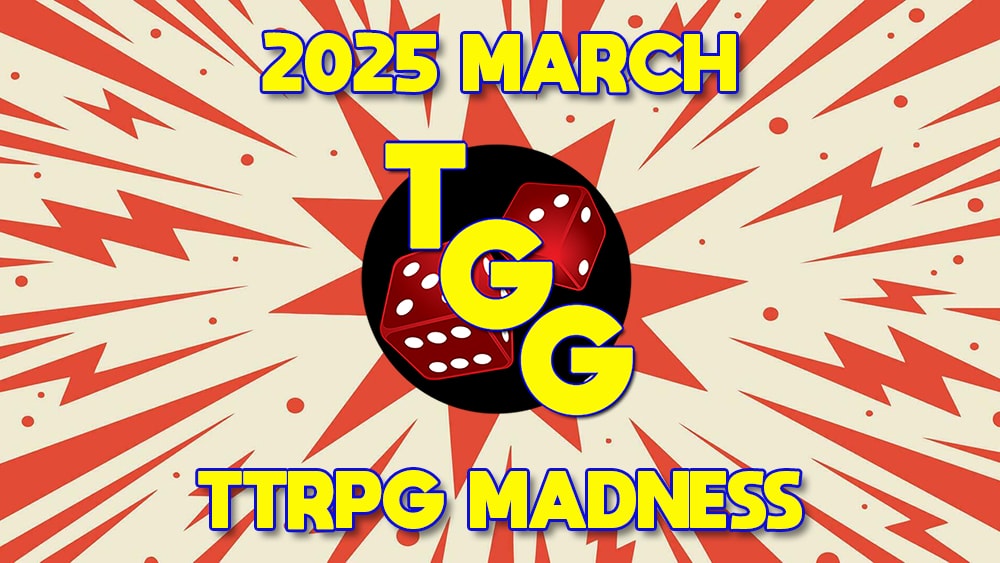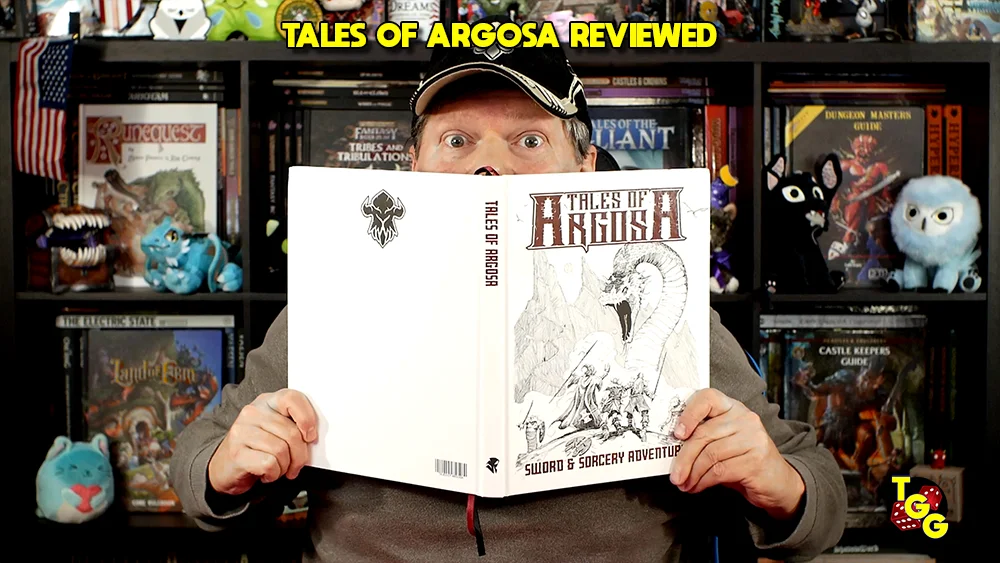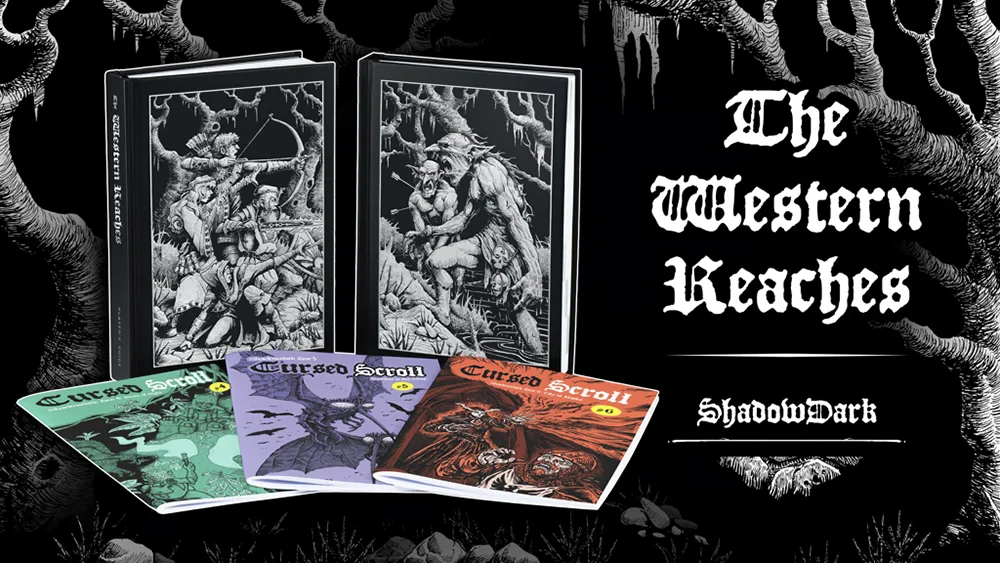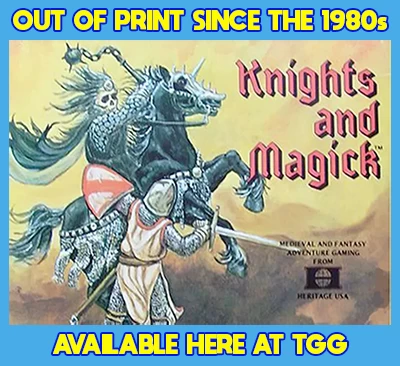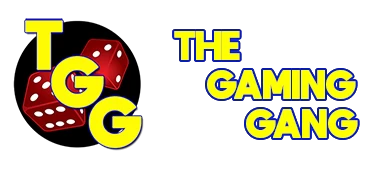Publisher: Rio Grande Games and Hans im Glück
Designer: Ronald Wettering
Artist: Claus Stephan
Year: 2010
Players: Two to five players
Ages: 8+
Playing Time: 45 Minutes
Genre: Bluffing and deduction game
MSRP: $34.99
The legend of the Loch Ness Monster has long been a part of our cryptozoological subculture. “Nessie” was first officially (officially?) documented on May 2, 1933 in Loch Ness in the Scottish Highlands. Since then we’ve been trying to capture the elusive plesiosaur on camera.
Loch Ness is Hans im Glück’s (published in North America by Rio Grande) attempt to get us all involved in the hunt for photographic evidence of Nessie. It is a Euro game, so of course you are questing for victory points for the win.
The first thing I’d like to point out is the box insert. I like it. It is decorated in game art and comes with a divider that splits the insert into four quadrants. It doesn’t really serve a specific purpose but it does look pretty neat.
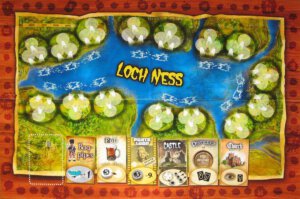
For example, a game will contain the rule, “In the event the text on a card conflicts with the rules, then the card takes precedence”. This is used as justification not to explain the text on the cards. The end result is that you end up with some cards that you are unsure how they work.
In the case of Loch Ness, the rules though short with nice diagrams and examples, are a bit mixed up. Give them a good read through, it doesn’t take long, before you start scratching your head. Also, skip the two player rules until you are ready to play a two player game, then read those separately. The two player rules are scattered about in little info boxes, and easier to understand if you have played the game before. There are two variants in the back of the rules, and I have played both with and without them.
The object of the game is to collect victory points by snapping pictures and collecting photo sets. Meanwhile the small Nessie figure is moving around the victory point track, when she passes 65, the game is over. The player with the highest score wins.
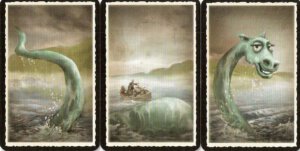
Each player puts a reporter token on the scoring track, next to the small Nessie figure, and then the big Nessie figure goes onto one of the 15 water spaces on the board. Everyone selects a move card from their hand and places it face down on the table. These are cards with values from 1 to 5 on them. Then each player takes turns placing their camera tokens in any of the different photo spots on the board. All of the photo spots are placed to aim directly at the Nessie water space in front of it.
After cameras are placed, the move cards are flipped over and added up. The small Nessie moves that total along the scoring track, and the big Nessie moves that many spaces around the water spaces on the board. Whoever has reporters placed in photo spots where Nessie ends up gets the victory points shown on the camera token they placed there. Only one camera per space is allowed, so the board can get pretty crowded with cameras.
Any player who had a camera pointing directly at Nessie gets to draw two or three photo cards as well. This is a deck of cards that show the head, middle, and tail of Nessie. You try to collect sets of these photo cards to earn bonus victory points at the end of the game.
Basically, the whole premise of the game is to predict where Nessie is going to end up on the board, and have your cameras there to snap a picture and earn points if she ends up there.
The second round is slightly different. First, each player places their second reporter token on one of the bonus spaces on the board to get that bonus for the turn. Bonuses include things like the Church, which allows one player to look at one of the face down move cards, and so have an easier time of predicting where she will end up. Another bonus is the castle, which allows you to move an extra camera after all the players have moved their own. There are six different bonus spaces, and only one player can be on each one.
In the second variant, there is a hotel card which acts as an extra bonus space. In the normal game you can select any move card each turn. In this variant, you can only use each move card once until you run out of move cards. Then you pick up all of your move cards and start the process again. The hotel bonus allows you to pick up all of 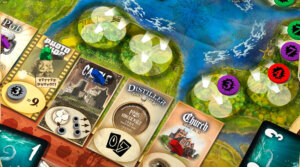
After placing your second reporter and selecting your move card, you now move up to two of your cameras (but at least one) to an empty space. Only one camera is allowed per space. Then the game proceeds as normal, flipping up the move cards and moving Nessie and scoring points. All subsequent rounds work the same way.
Play continues until the little Nessie passes space 65 on the scoring track, then the photo cards are traded for bonus points and the player with the highest score wins.
I found the game to be ok. Those who enjoy Euro games and like the Nessie theme should have a good time. It is a good family game that easily takes less than an hour to play. My kids found it boring. Chasing Nessie around 15 spaces on the board was just too tame for them to get into it.
One thing that would have improved it for me would be a realistic photo board, photo cards, and real people who have snapped pictures in the past instead of the cartoony characters included. There is a whole world of Nessie photos and literature that can be drawn from or faked, and if I was looking at an actual aerial map of Loch Ness, and some actual photos of Nessie it would crank up the coolness factor for me. Maybe a Nessie figure as well. The game is done in a cutesy way, and I’d just prefer a more serious take with some descriptive text on the photos to boot. Yes, I know it is a legend, but it would be cool to play up the legend a bit rather than just putting a cutesy Nessie theme on a basic move and score points game.
[rwp-review id=”0″]
- A Dungeon Delve for Kids?: A Review of Dungeon! - Oct 24, 2022
- Better, Stronger, Faster | Descent: Journeys in the Dark Second Edition Reviewed - Oct 23, 2022
- Your Planet is Doomed!: Invasion from Outer Space Reviewed - Oct 22, 2022
